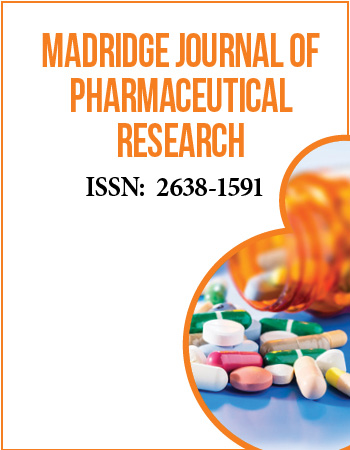International Conference on Medicinal and Pharmaceutical Chemistry
December 5-7, 2016 | Dubai, UAE
Apoptosis versus autophagy in the molecular mechanism of action of plant derived chemotherapeutics against hepatocellular carcinoma cells
Rajiv Gandhi Centre for Biotechnology, India
Hepatocellular Carcinoma (HCC) is the fifth commonest malignancy worldwide. There is an obvious critical need to develop improved methods for chemoprevention and treatment of HCC as the current strategies are ineffective. Naturally occurring phytochemicals and dietary compounds have emerged as promising molecules with chemopreventive and chemotherapeutic potential in different types of cancers. Recently, autophagy has emerged as a potential target in cancer chemotherapy, but its precise role being controversial. The study intends to investigate the role of autophagy in cell death induced by selected anticancer lead molecules (resveratrol, silibinin, glycopentalone) from plants in HCC cells. The anticancer agents were validated for their cytotoxic activity in HCC cell lines HepG2 and Hep3B. Chromatin compaction was characterized by Hoechst staining and cell cycle arrest by FACS analysis, which affirmed the activation of apoptosis. Our studies demonstrated that the selected anticancer agents induced autophagy together with apoptosis, dose and time dependently. Activation of autophagy was evidenced by fluorescence microscopic detection of autophagic vacuoles, formation of acidic vesicular organelles (AVOs), immunoblotting patterns for conversion of LC3-I to LC3-II, immunofluorescence analysis of recruitment of LC3-II to the autophagosomes and autophagic flux analysis using Bafilomycin A1. Also, the pathways regulating autophagy were analysed which revealed the involvement of PI3/Akt/mTOR pathway. The antagonistic roles of autophagy and apoptosis in response to exposure of HCC cells with these agents were evident through morphological and autophagy inhibition studies. Combining autophagy modulators with plant derived anticancer lead molecules would be an exciting modality for combating the worries of liver cancer.
Biography:
Greeshma Tom is pursuing PhD in Biotechnology under the guidance of Dr. Asha V. V., Scientist EII, Plant based bioactives and disease biology Lab, Rajiv Gandhi Centre for Biotechnology, Thiruvananthapuram, India. She works on the evaluation of various cell death pathways activated during chemotherapy against liver cancer. Prior to doing PhD, she completed her graduate and post graduate degrees from Bangalore University and M.G University, India. She was awarded Research Fellowship by CSIR (Council of Scientific and Industrial Research) in 2012. She has published in peer reviewed journals with her colleagues at RGCB and presented papers in international conferences.


